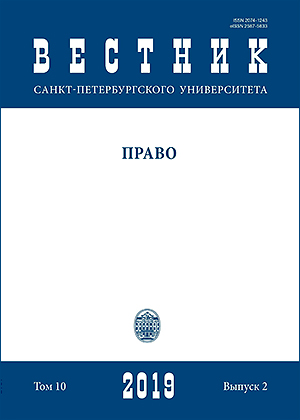The Second World War as a social trauma: a comparative analysis of Russian and French legislation
DOI:
https://doi.org/10.21638/spbu14.2019.208Abstract
The article compares legislation for the memorialization of the Second World War in France and Russia. Based on the theory of social trauma, memorial law performs the function of overcoming trauma. Its specific tasks are verbalization of trauma and the expression of points of view that determine the identity of the society. These tasks do not depend on type of law, which can be soft or strict, positive or negative. Social reasons for adopting of memorial legislation include deepening public interest in history and spreading discussions on topics that are painful for national identity. The history of memorial legislation for the Second World War in both countries began long before the adoption of the Gayssot Law in France and the introduction of Art. 354.1 to the Criminal Code of the Russian Federation. Russian laws of 1995 and their evolution to the present are considered. With the help of comparative analysis, the common features of legislation on memory in the two countries are highlighted. A comparison focused on the Resistance and the Soviet Union. On the basis of judicial practice, the interpretation of certain controversial concepts is given. The practice of constitutional control over the memorial legislation on the Second World War is traced. The most important directions for improving legislation and social practices are indicated: minimization of necessary restrictions on freedom of speech, and research into crimes committed by citizens of the victorious countries for the period 1939–1945.
Keywords:
memorial laws, Second World War, Geyssot Law, days of military glory and memorable dates, commemorating victory, rehabilitation of Nazism
Downloads
References
Downloads
Published
How to Cite
Issue
Section
License
Articles of "Vestnik of Saint Petersburg University. Law" are open access distributed under the terms of the License Agreement with Saint Petersburg State University, which permits to the authors unrestricted distribution and self-archiving free of charge.






